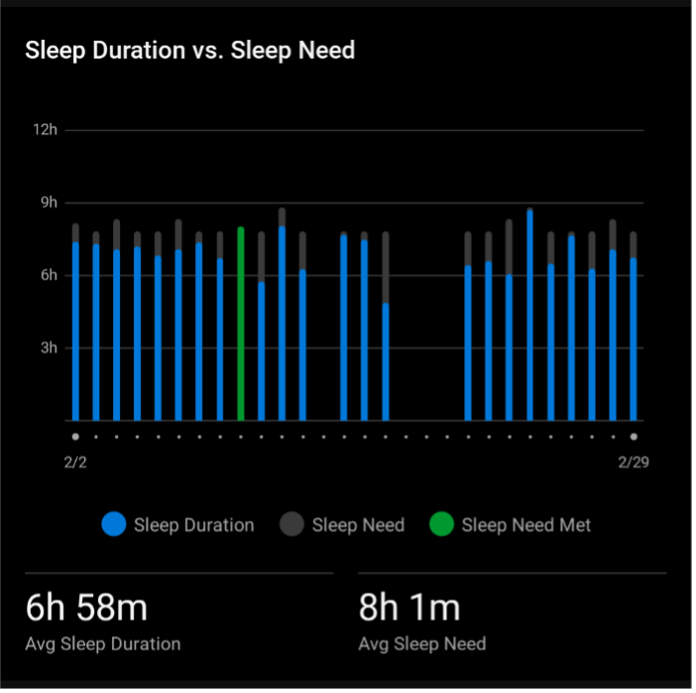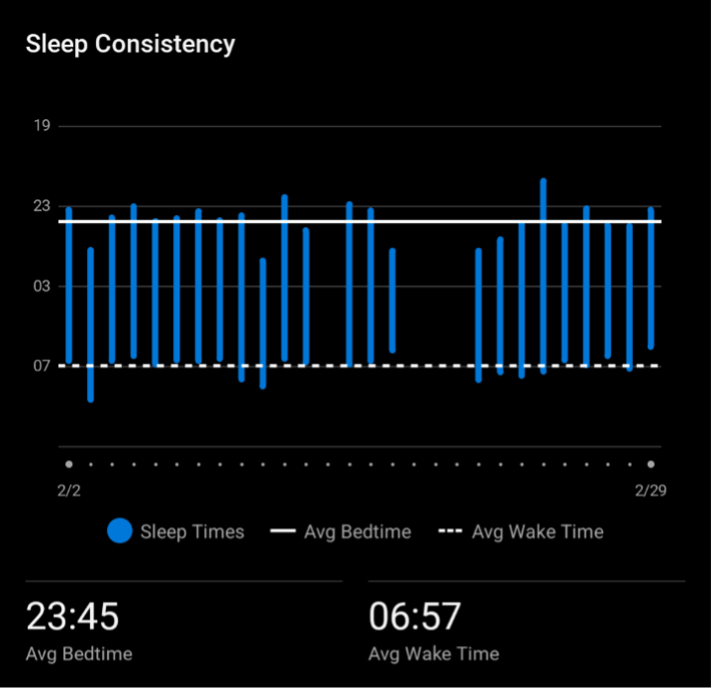Start Sleeping Better Today, Not Tonight

March 12, 2024
A good night’s sleep makes everything better. Sleep is a vital time of restoration and rejuvenation. It is only when you are asleep that your body can reach the peak of its recovery powers.
Unless you’ve been sleeping under a rock, this is old news. It is hard to miss the tide of interviews and articles from sleep experts, influencers and health professionals praising the benefits of a good night’s sleep. Sleep has a universally favorable approval rating.
Making good sleep a priority is one of the most rewarding decisions you can make for your health and personal well-being. It is the great multiplier, supporting you even as you try to improve other aspects of your life.
The American Heart Association recently highlighted a year-long study that explored the relationship between personal sleep habits and adherence to a lifestyle-oriented weight loss program. Individuals with better sleep habits were more likely to attend program meetings regularly, follow daily calorie intake goals and increase their daily physical activity.
Understanding Your Sleep
Keeping tabs on your sleep and developing good sleep habits is easier than ever thanks to an ever-growing number of insights available on your Garmin watch. These insights go beyond simply marking when you sleep and how much you sleep. Garmin sleep score, sleep coach, Body Battery™ energy monitoring and overnight heart rate variability (HRV) interpret your sleep1 and reveal how sleep impacts other aspects of your daily life.
Curious about how sleep impacts your fitness and performance? Sleep score provides a foundation for training readiness, a popular feature on Garmin running and outdoor watches, designed to scientifically assess your readiness to benefit from intense training sessions. And an especially good sleep score can shave hours off your current recovery time estimate, thanks to the restorative power of sleep. You may also see recovery time recommendations increase after a particularly bad night. Still, despite the evidence contained in our morning reports, it is easy sometimes to reject the notion that our sleep habits are holding us back. Our lives are comprised of routines. Choices we make in the moment always seem to make sense at the time. Habits, good and bad, are built over time. Meaningful lifestyle changes can be difficult even when you are highly motivated.


This is where a longer-term perspective can come in handy. Looking back at your sleep patterns over the past four weeks or even the past year can be an eye-opening experience. The kind of experience that makes a difference.
Lifestyle Insight for Improving Your Sleep Quality
Once you crawl into bed, there isn’t much you can do to improve your sleep. How well you sleep (or don’t) is largely the result of steps taken throughout the day and even longer periods of time. The following insights will boost your understanding of how lifestyles choices ultimately impact your sleep quality.
Wake up for better sleep
You might be surprised to learn that setting the stage for a good night’s sleep starts first thing in the morning. This is what experts call your circadian rhythm. Your circadian rhythm is your body’s internal clock, following a roughly 24-hour cycle that influences practically every cell in your body and is accompanied by physiological, mental and even behavioral changes.
Try to wake up at the same time every day. Open the curtains to let natural light into the room as soon as you wake up. A regular wake time and morning light exposure combine to amplify the signal that your day has begun, anchoring your circadian rhythm in the process. For the best results, also try to get outdoors for a brisk walk or light exercise in the morning.
Eating for better sleep
From your body’s perspective, your meal doesn’t end when you finish your last bite and get up from the table. Digestion takes time, and your body is affected by the process. The work of digestion can impact your sleep quality. Ideally, your last heavy meal should be at least 2-3 hours before bedtime. Spicy and acidic foods can be especially challenging for good sleep due to an increased likelihood of acid reflux, heartburn and indigestion.
If you are hungry before bed, try sticking to yogurt, fruits, nuts and light snacks. Oatmeal is another popular option, easy on your stomach and containing magnesium and melatonin, two ingredients frequently found in sleep supplements.
Drinking for better sleep
Proper hydration is a cornerstone of good health. Drinking water before bed? The results are mixed. Some find that it helps them sleep, while for others it simply means needing to visit the bathroom in the middle of the night.
Beverages that contain caffeine and alcohol can have a profound effect on sleep, each in a different way. Caffeine is a fast-acting stimulant that perks you up and makes it hard to fall asleep. With a half-life of between 3-5 hours, the influence of caffeine on your…
